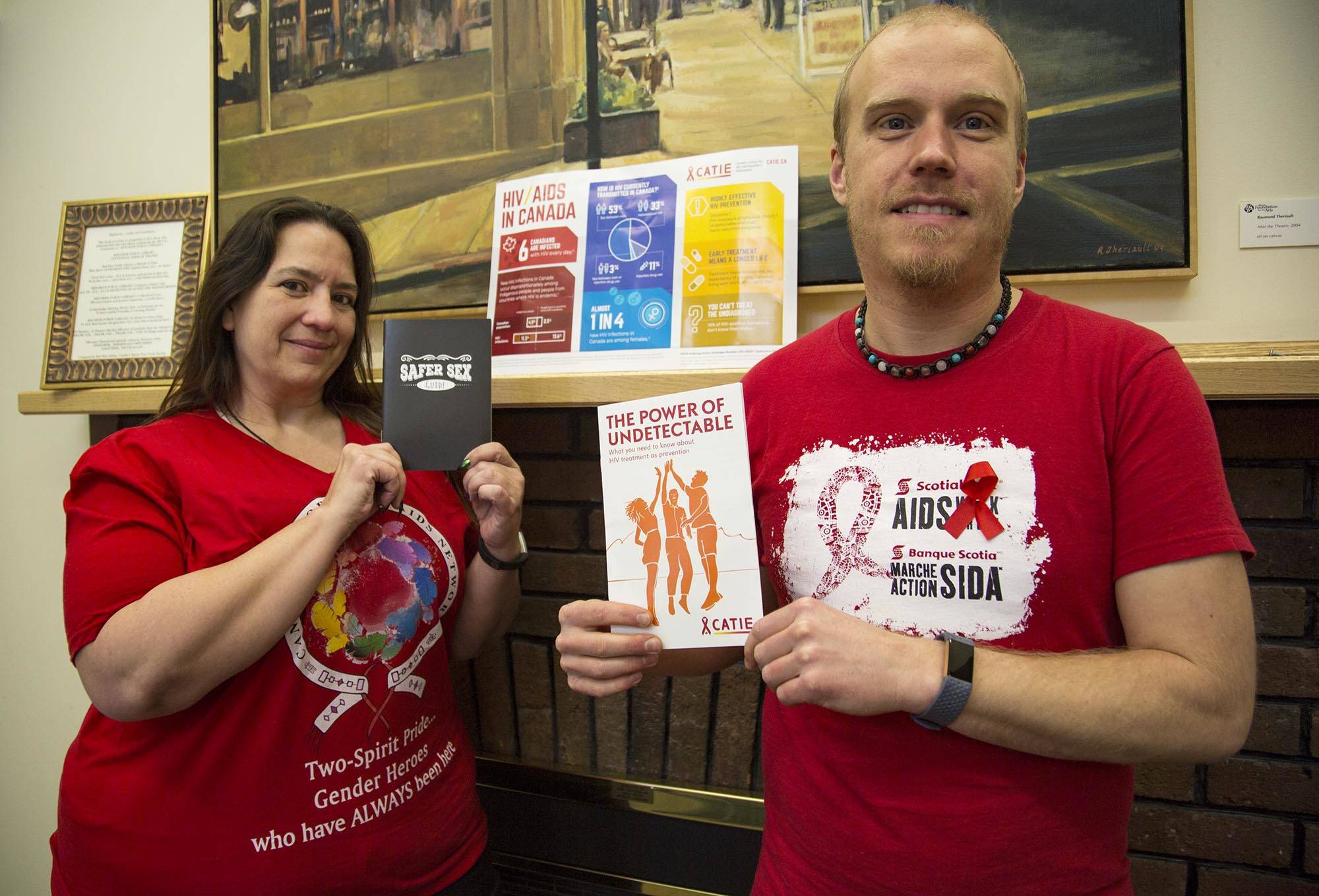HIV and AIDS may not be the death sentence it was three decades ago, but there still are many issues that need to be addressed, according to health workers in Red Deer.
To mark the 30th anniversary of World AIDS Day on Dec. 1st, Turning Point and Shining Mountains Living Community Services held a walk to raise awareness about the disease.
This year’s theme is “Know your status.”
Kandace Ogilvie, program manager at Shining Mountains, said getting tested for HIV and AIDS is one of the most helpful tools to prevent and treat it.
In fact, one in five Canadians don’t know they are infected with the virus.
“We all go and get our regular health checkups,” Ogilvie said. “Getting tested is just another good step. Go and get yourself tested.”
Kevin Cunningham, a health promotion outreach worker at Turning Point, said there is still a lot of progress to be made about the stigma around HIV and AIDS. The stigma creates problems for people living with the disease, he said.
“Stigma is what can hinder somebody from either getting tested or accessing the treatment they need because they don’t want to be lumped into a certain category that is highly stigmatized,” he said.
“We are working really hard to raise that awareness that anybody can be affected. It’s not just one population.”
According to recent statistics released by Casey House, Canada’s first and only hospital for people with HIV/AIDS, 51 per cent of Canadians believe they can transmit or get HIV through touch, an embrace or sharing a glass.
Ogilvie called those statistics ‘unfortunate.’
“That’s not the way HIV is spread,” she explained. “It is blood-to-blood contact. If you hug somebody or shake their hand, even if you kiss them, you are not going to contract HIV. It really does have to be blood-to-blood.”
If HIV-positive individuals take treatment and maintain an undetectable viral load, she said they will not pass HIV to their partner. When HIV is undetectable, it’s untransmittable, she said.
“When you are taking your appropriate treatment and you take it on time and do your due diligence your viral load will be low enough so that it’s undetectable,” she said.
In the 1980s, contracting HIV would have been a ‘death sentence,’ Ogilvie said. But with the treatments available today, people can lead normal lives, as long as they take care of themselves.
Cunningham explained that a large barrier people face, especially in Central Alberta, is not having access to an infectious disease specialist.
“They are located in either Calgary or Edmonton, so to see an HIV specialist requires transportation and that’s a barrier for some people,” he said.
While advancements are being made, he said Canada is behind the 90-90-90 global treatment target.
The aim of the 90-90-90 global treatment target is that by 2020, 90 per cent of all people living with HIV will know their HIV status. Also that 90 per cent of all people diagnosed with HIV infection, will receive sustained antiretroviral therapy. The target also states that by 2020, 90 per cent of all people receiving antiretroviral therapy will have viral suppression.
HIV and AIDS seem to be on the backburner now, Cunningham said.
In September, the Alberta government announced it would provide universal coverage for PrEP, an HIV-prevention drug that is almost 99 per cent effective at stopping individuals from transmitting the disease.
The awareness walk in Red Deer kicked off the 20th anniversary of Aboriginal AIDS Awareness Week, which runs from Dec. 1st to 5th.



